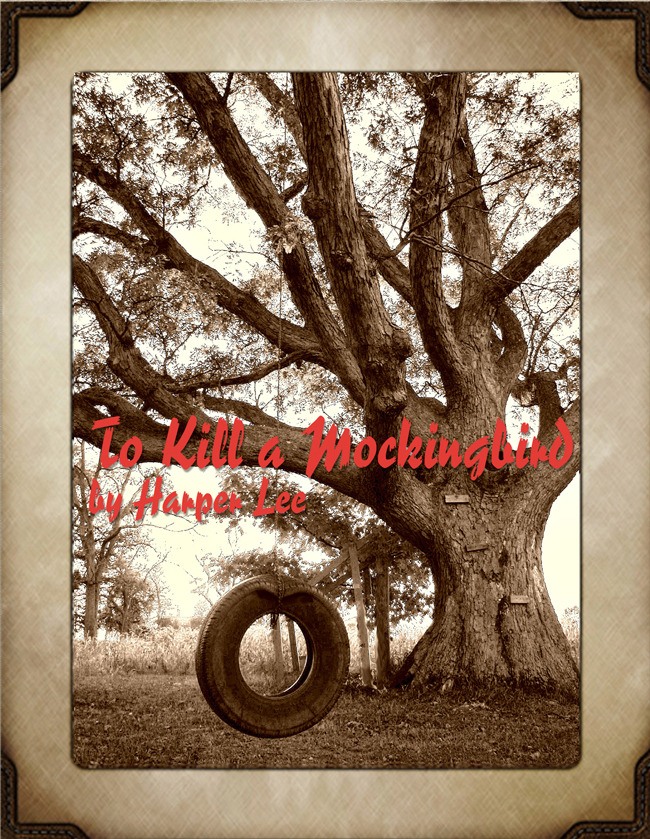It’s a story that deals with heavy themes: intolerance, racism, integrity, honor, gender roles.
Those very elements have made “To Kill a Mockingbird” a timeless piece of literature.
“Atticus is trying to teach his kids that they will get along a lot better in life if they can learn to stand in someone else’s shoes,” said Beth Baker, who plays the narrator in Orcas Center’s production of “Mockingbird.”
The Pulitzer Prize winning novel by Harper Lee is set in a small town in fictional Maycomb County, Ala., 1933-1935. It was adapted for the stage by Christopher Sergel and produced by special arrangement with “The Dramatic Publishing Company” of Woodstock, Ill.
It will be at Orcas Center for four performances: Friday and Saturday, Feb. 10-11 and 17-18 at 7:30 pm.
“Our script is not a direct adaptation of the book,” Baker said. “However, the attitude and the heart of the book is captured.”
Set in Alabama during the Great Depression, “To Kill a Mockingbird” follows the journey of Jem and Scout Finch, whose father has been appointed to defend Tom Robinson, a black man framed for a crime he didn’t commit. As the trial progresses, Jem and Scout witness their community in a tense tug of war between justice and racism. The play is renowned for its warmth and humor, despite dealing with the serious issues of rape and racial inequality.
“I see so many ages coming to see this,” Baker said. “It deals with a harsh topic … but it’s a family show.”
The Orcas Center show is directed by Robert Hall and performed by a local cast of around 20. Scout is played by two young actresses: Aliza Diepenbrock and Paris Wilson. They alternate between different nights. Lopez resident Warren Hero has been commuting to play Tom Robinson, the black field hand wrongly accused of rape.
“Robert Hall is at his best when he’s directing,” Baker said. “He’s fresh, he’s creative and he has the ability to create beautiful pictures on stage.”
The plot and characters are loosely based on Lee’s observations of her family and neighbors, as well as on an event that occurred near her hometown in 1936, when she was 10 years old. The narrator’s father Atticus Finch, has served as a moral hero for many readers and as a model of integrity for lawyers. Lee said she based the character on her father, a white attorney who once defended two black men on trial for murder.
Lee found instant fame after “To Kill a Mockingbird” was published in 1960. The novel was showered with literary awards, including the Pulitzer Prize for fiction in 1961.
The play contains a significant amount of dialogue and the cast has been practicing since September.
Orcas audiences last saw Baker in the vibrant production of “Gypsy” at Orcas Center two years ago.
“I’m still tired from Gyspy, but when Robert asked me to be in this play, I read it in the ferry line and broke into tears,” Baker said. “I thought, ‘How can I not be in this?’ It is an honor to say so many of Harper Lee’s words.”
Orcas Island dancer Rene Sturk plays Calpurnia, the Finch family’s cook, who is the children’s bridge between the white world and the black community. She describes Calpurnia as a “strong character” who has a “hand as hard as a bed slat.” This is Sturk’s first acting experience.
“It’s been tough to communicate with my voice – I’m used to communicating with my body,” she said.
Sturk says the themes of “To Kill a Mockingbird” have been difficult for her.
“It’s been challenging at times, dealing with the racist issues,” she said. “We say the n-word about 20 times in the play. I have to remember that I am playing a character … There are not just the themes of racism – Boo Radley represents a different kind of prejudice.”
Baker says she is “really looking forward to the opportunity to share this with our community.” It’s a sentiment that Sturk echoes.
“Our hope is that people in the community will see this and understand racism and prejudice from a different time period but still understand that it happens today – even on Orcas,” Sturk said.




